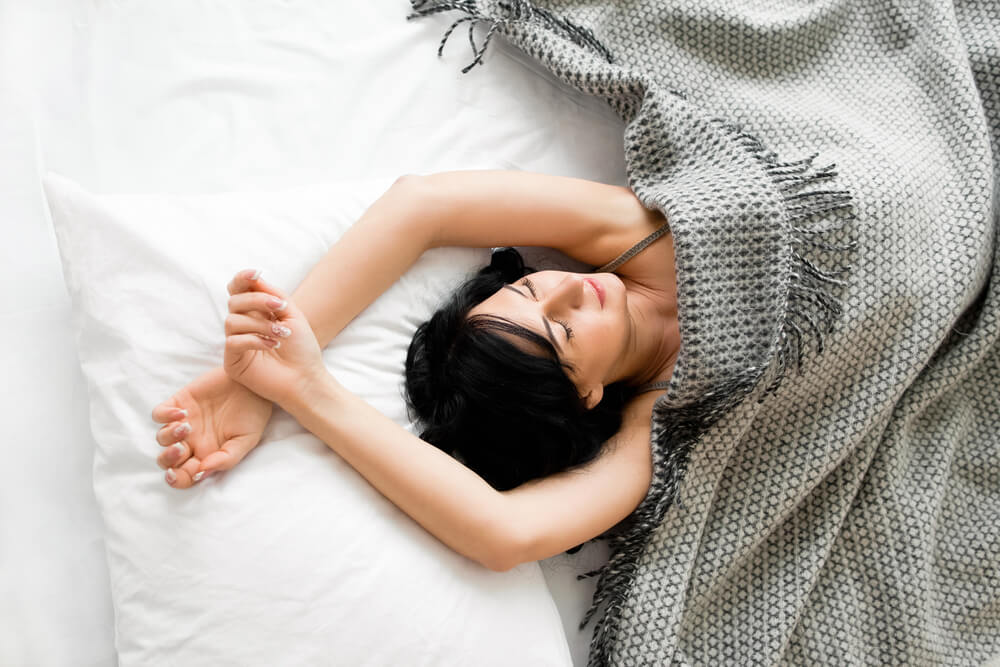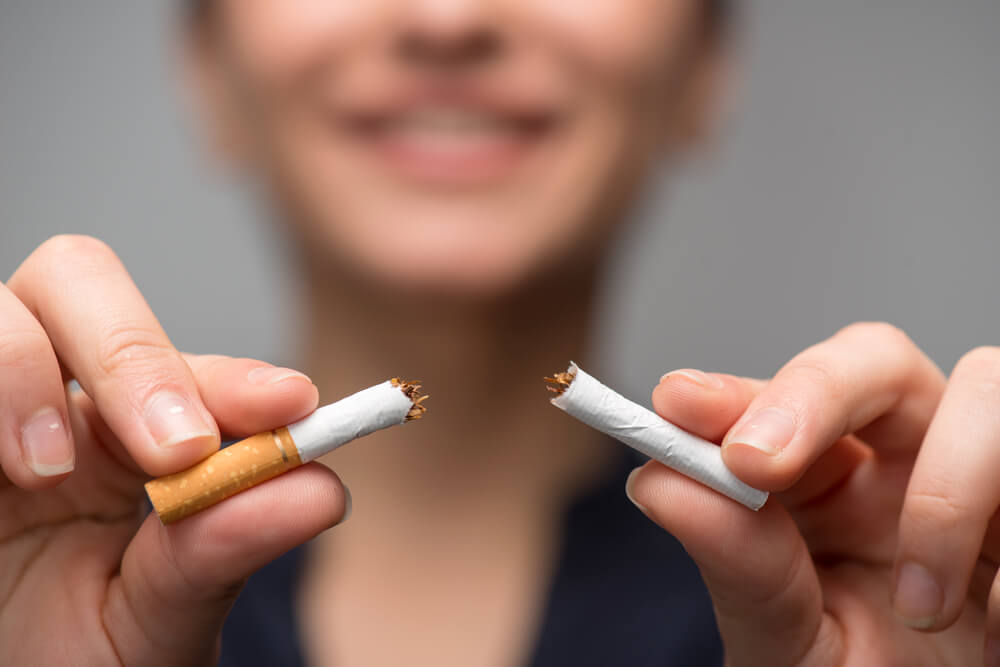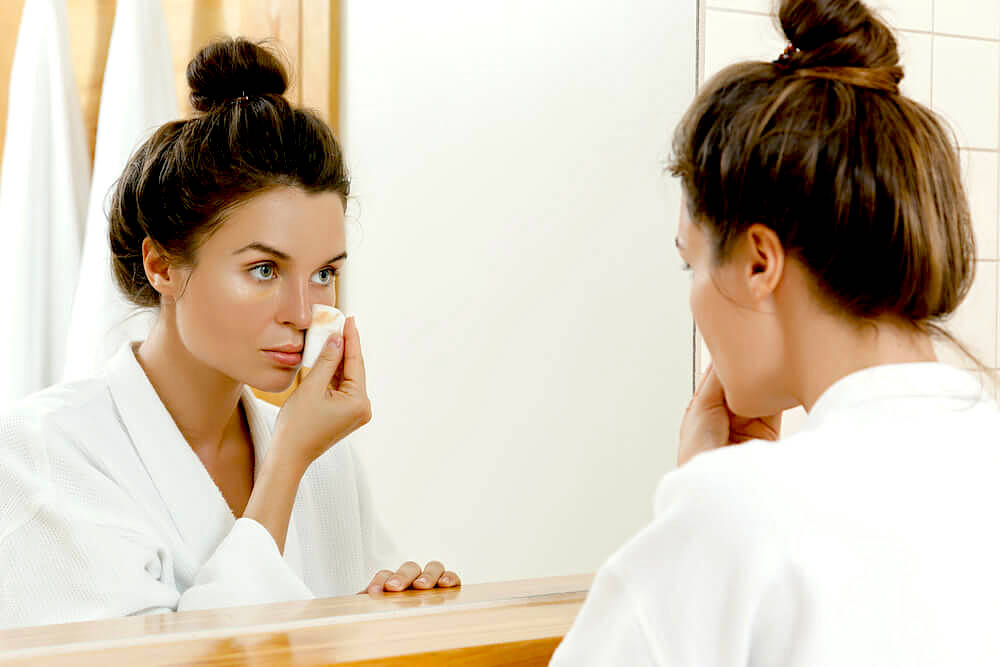Easy Lifestyle Habits to Improve Your Skin

While creams, lotions and other skin care potions may do wonders for your skin, there are plenty of other ways too in which you can boost your complexion. From diet to exercise to stress management, here are some easy lifestyle habits that you can adopt to improve the health of your skin.
Regular Exercise
Regular exercise has been proven, countless times, to really boost skin health.
How does it do this?
In a number of ways:
- Exercise increases blood flow, meaning more nutrients are brought to the skin
- Sweat opens up the pores and enables the body to release toxins
- Stress can really damage the skin, but exercise lowers stress levels
Hate the gym?
Find a form of exercise that you enjoy doing, whether this may be a sport, a dance, or simply heading out for an easy bike ride with your partner.
Cleanse After a Workout
As important as exercise may be, cleansing your skin after working out and sweating is just as vital.
Why?
If you leave the sweat to sink into your pores, this will only end up causing blockages, leading to breakouts and blemishes.
For those who are not able to immediately cleanse after sweating, carry some cleansing wipes around with you. While these do leave a bit of a residue behind, they are still better than nothing when it comes to cleansing after a workout.
Don’t Skimp on Beauty Sleep
Beauty sleep is called that for a reason. While your body is sleep, your cells, including your skin cells, work to heal and regenerate themselves. If you miss out on a few hours of sleep, it is not able to do this to the best of its abilities.
Just one night of poor sleep can lead to eye bags and puffiness, and doing this in the long run can really affect your skin on a deeper level.
Do you try to go to bed at a reasonable hour, but have a tough time falling asleep?
Here are a few tips to help you out:
- Do not bring any electronics into your bedroom, as the blue light that comes from them is known for being disruptive to sleep
- Turn your bedroom into a relaxing haven, with soft lighting, comfortable bedding, and relaxing music
- Cut out midday naps
- Sip on a cup of chamomile tea
- Develop a consistent bedtime routine to re-train your body clock
Wondering how much sleep you need?
Around eight hours per night is ideal, although if you cannot always manage this on weekdays, you can always make up for it by having an extra lie-in on the weekends.
Stay Hydrated

The recommended amount of water that the average person should be drinking each day is eight glasses. While this may seem like a lot to some, 60% of the human body is made up of water, so it only makes sense that this needs to be replenished as much as possible.
Finding it difficult to meet your recommended daily water intake?
While nothing quite beats plain, fresh water, herbal and fruit teas can be just as hydrating, and will also have extra skin-boosting properties due to their antioxidant content.
Fruit juices are another good alternative, but make these yourself rather than purchasing sugar-laden store-bought versions. Keep in mind that even homemade juices will be quite high in natural sugars, so this should only form a small part of your daily water intake.
Use Satin or Silk Pillow Cases
The majority of people out there tend to use cotton pillowcases, and while these may be the most convenient, the fabric causes friction when it rubs against your face.
This can result in unwanted fine lines and wrinkles, usually on the side of your face that you sleep on the most.
However, switching to a satin or silk pillowcase can really help with this.
How?
Due to the soft, silky fabric, there is no friction created when your skin rubs against the pillowcase, and it will simply glide smoothly over instead.
Change Your Pillowcase Every 2 Days
While you may only change your bedding on a weekly basis, it is important to try to change your pillowcase more often.
Why?
Each night while you are sleeping, your skin releases sebum, and this ends up accumulating on your pillow. To prevent this from soaking back into your face each night, clogging up your pores, try to change your pillowcase every 48 hours.
Adjust Your Sleeping Position
In addition to switching pillowcases, you should also take a look at the positions that you most commonly sleep in. As mentioned above, fine lines and wrinkles will develop on the side of your face that you sleep on the most, and while this may not seem like such a big deal now, the difference will really be noticeable in the long run.

Sleeping on your back is the best position for your skin, and you can always try propping pillows up on either side of you to prevent you from rolling over. Alternatively, there are special pillows that you can purchase that will help to keep you on your back throughout the night.
Resist the Temptation to Touch Your Face
Your fingers come into contact with so many different surfaces throughout the day, and each of those surfaces comes with its own set of bacteria and germs. Each time you touch your face, you are only putting all of these germs onto your skin, leading to blemishes and breakouts.
Commit to SPF Everyday
There are so many different elements out there that can damage your skin, but the sun tends to be the worst of them all.
Did you know that the sun alone is responsible for up to 90% of facial wrinkles?
That shocking fact should be enough to convince you of the importance of SPF, which needs to be worn every single day. Try to get into the habit of doing this, perhaps by placing bottles of sunscreen around your house, in your car, and in your office, so that you are never able to forget.
SPF 30 is usually the best one to go for, although if you have particularly sensitive skin you may need to opt for something stronger.
While you may think that you can get away with skipping the sunscreen on cloudy winter days, this is not at all true, as the majority of the sun’s UV rays are still able to penetrate through thick cloud.
Keep Your Cellphone Clean

In the same way that your fingers transfer bacteria onto your face, so does your cellphone. In fact, studies have shown that the average cellphone carries ten times more bacteria than most toilet seats.
Fortunately, there is an easy fix…
Simply wipe your cellphone down twice a day with an antibacterial wipe, as this should be enough to keep it clean.
Develop a Daily Skin Care Routine
If you tend to only care for your skin when you remember, this is something that needs to change.
Your skin needs care on a daily basis, which is why developing an easy-to-follow daily routine is essential.
Even if you do not have much time to spare, this only needs to take a few minutes, and can be done at night before you go to bed. This is actually better than doing it in the morning, as it will clear your skin of all of the dirt and bacteria that has built up over the course of the day.
So, what does your skin care routine need to consist of?
For the most basic routine, all you need to do is cleanse and moisturize. Of course, there are plenty of extras that you can add in, from serums to eye creams to toners, and these all do have their advantages.
However, if you are only getting started with skin care, keep it simple to begin with, and work on maintaining this habit before adding in more components.
Eat a Healthy Diet
The food that you eat has a direct impact on the health of your skin, and while some foods may really boost your complexion, others can quickly damage it.
You probably already know the foods that you should be eating…
It goes without saying that fresh, whole foods are always going to be better than processed ones, and you should be trying to eat a wide variety of colorful fruits and vegetables, as each color signifies a unique range of vitamins and antioxidants. Nuts, seeds and oily fish are also vital for skin health, as these contain essential fatty acids that cannot be found elsewhere.
What about the foods that you should be avoiding?
Anything high in sugar and salt, as these will dehydrate your skin, while fried and fatty foods will cause blemishes and breakouts. Try to also limit your intake of alcohol, as this can also be severely drying to your skin.
Quit Smoking
Not only does quitting smoking come with a number of different health benefits, but it will also make a significant difference to your skin.
How?
Smoking basically starves your skin of oxygen and nutrients, while breaking down its collagen and elastin. From wrinkles around the lips to an uneven skin tone to a dull complexion, smoking has absolutely no advantages.

Yes, quitting smoking may be one of the hardest things that you will ever have to do, but your skin will really thank you.
Manage Your Stress Levels
When your body experiences stress, it releases a hormone, called cortisol, into the body, as this helps it to deal with the stressful situation it is facing. However, when this happens consistently, due to chronic stress, the cortisol will really begin to take its toll on your skin.
Cortisol not only breaks down collagen and elastin, but also exacerbates existing skin conditions, such as acne, eczema, psoriasis and rosacea.
Want to know how to manage and lower stress?
Everybody has their own way of doing this, but a few methods that you can try include:
- Doing some exercise
- Meditation
- Yoga
- Finding a hobby
- Keep a journal to identify your main stressors, so that you can cut these out of your life
Invest in a Humidifier
If you tend to use indoor heating quite a bit, whether this may be radiators, a fire, or even air conditioning, a humidifier would be a great investment to make.
Indoor heating, as well as cooling systems, really dry the air out, which means that it then ends up sucking all of the moisture out of your skin.
A humidifier adds moisture back into the air, keeping this at a steady level, meaning that your skin is able to stay hydrated and soft.
Remove Your Makeup Before Bed
Even if you really are too tired to follow your night time skin care routine, sleeping with your makeup on is still a big no-no.
This makeup not only prevents the skin renewal process from taking place that night, but it will also settle into your pores, resulting in breakouts and infections.

Wondering whether one night of sleeping with your makeup on is really that bad?
Well, one night will not cause any long-term damage, but when you are working on building healthier habits, every night makes a difference.
Turn Down the Water Temperature
There is nothing quite as soothing as a hot steamy shower after a long day, but this is actually causing quite a bit of damage to your skin.
Hot water strips your skin of its natural oils, while damaging your skin’s natural protective barrier, leaving it much more vulnerable to environmental damage.
Keep your water temperature lukewarm, and try to limit the length of your showers and baths to no more than ten minutes.
Spend Less Time on the Sofa
Those who lead a sedentary lifestyle tend to have skin that is less healthy than those who are more active.
Why is this?
Well, being active increases the blood flow throughout your body, which gives your skin a natural glow. It also stimulates lymphatic drainage, which means that toxins can be cleared from your body at a quicker rate, preventing them from affecting your skin.

